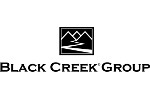Sponsored: Black Creek Group – Adding Value with Debt

By: Lainie Minnick Chief Financial Officer, Diversified Property Fund & Head of Debt Capital Markets for Black Creek Group
Sourcing, acquiring and managing commercial real estate that ultimately provides attractive, risk-adjusted returns to investors requires a number of tools and resources. One of the most powerful value-creating tools a real estate investment company can employ is the strategic and sophisticated use of debt.
When used correctly, this tool can potentially add significant value to a single property or to an extensive portfolio. When used incorrectly, it can cause an investment to fail.
The strategic utilization of debt empowers a real estate company to potentially increase returns, so long as the cost of debt is less than the cost of equity. Debt is also a powerful diversification agent that may allow a real estate investment company to expand its investment strategy within multiple markets and assets, thereby reducing exposure and mitigating concentration risk. Rather than buy one income-producing property, why not leverage your equity capital and buy another? Debt allows companies to extend their investable capital to then expand their holdings, which may maximize returns.
At Black Creek Group, using various forms of debt is one of our strategic advantages. Diversified financing strategies allow us to efficiently and effectively capitalize on opportunities to maximize yields, while continually being mindful of our investors’ risk profiles.
Of course, the successful utilization of financing is dependent on two very important variables—the investment itself and the type of debt used to help pay for it.
While many real estate investment companies have weekly pipeline meetings to review and discuss potential deals with their acquisitions team, at Black Creek Group we take a more collaborative approach. Black Creek Group’s pipeline meetings include not only our acquisitions team, but our due diligence, asset management, debt capital markets and legal teams.
Everyone has the opportunity to chime in with their concerns, suggestions and perspectives–making us thoughtful and selective about the deals we ultimately choose to pursue. By bringing in the debt capital markets team at the very beginning of the acquisition process, we are able to recommend financing strategies and flag any financing considerations early.
NAVIGATING RISK VS. RETURNS
It’s always a balancing act when managing risk versus return. While floating-rate debt can be inexpensive if rates stay static, too much variable-rate debt may create cash flow volatility or an increased cost of capital if interest rates should rise. To the contrary, too much long-term fixed-rate debt placed on a property could severely limit flexibility. What’s more, being over- leveraged during late-market cycles can provide less staying power should a downturn follow.
These are just a few examples of why at Black Creek Group we are constantly evaluating our financing strategies to identify ways to mitigate risk while improving the performance of all our investments–from the moment we close on an asset through the duration of its holding.
One of the most powerful ways that we help mitigate interest rate risk is to consider the relationship between leasing and financing. If our weighted-average lease duration is three years, then that’s a good indication of how long our target weighted-average fixed-rate duration should be.
In other words, if rates are rising because the economy is strong, then new lease rates are likely trending upwards accordingly, therefore creating somewhat of a natural hedge against interest rates. Although we believe this to be a consideration, there can be no assurance that our lease rates will rise commensurate with our interest rates.
Additionally, we utilize derivatives, not for speculation, but as a tool to convert floating-rate debt such as LIBOR (the London interbank offered rate—a benchmark rate that represents the interest rate at which banks offer to lend funds to one another) into fixed-rate financing.
This is accomplished through the utilization of interest- rate swaps, separate agreements that allow us to fix interest rates, while still being able to take advantage of the flexibility associated with floating-rate debt.
Our stakeholders are investing with us for our real estate expertise. They’re not looking to us to make interest rate bets.
STRATEGIC FINANCING TECHNIQUES
One of the competitive advantages we enjoy at Black Creek Group, is having access to revolving corporate lines of credit, which typically allow us to close on acquisitions with- out the need for property-level acquisition financing—a feature that many sellers find desirable. It also allows us to finance a property post-acquisition in an optimal way. This is a strategic exercise that involves property under- writing, our broader corporate financing strategy and the evaluation of the associated risk profile. It’s a carefully choreographed dance that can provide real value through the life of an investment.
Once a building is acquired, we’re not committed to just one form of financing during the time we manage the property within our holdings. We constantly revisit the best way to finance an asset based on its investment strategy, occupancy, risk profile and changing market fundamentals. Additionally, in efforts to mitigate financing and interest rate risk, we stagger our loan maturities to ensure that we don’t expose ourselves to too much debt coming due in any given year.
The types of debt that we utilize depends on numerous factors, including the particular investment strategy for a property. For example, we’ll take a different approach to financing a vacant building versus a multi-tenant property which has stable cash flows in place on a long-term basis.
We have a wide array of financing alternatives to choose from for each investment. When we first acquire a property, we may finance it using a corporate revolving line of credit to ensure that the deal closes without a financing-related hitch. Thereafter, we have the flexibility to refinance with the type of corporate or property level debt that we believe is ideally suited for each investment.
For example, if we are buying a small deal with concentrated lease maturities, we may look to acquire it with corporate debt and then refinance thereafter by pooling it with some other properties to create a diversified collateral pool. This strategy may reap better financing terms than had we financed the property upon acquisition on a stand-alone basis.
MANAGING AGAINST RISING INTEREST RATES
For our properties with strong occupancy and predictable revenue streams, we often utilize long-term life insurance company debt, which currently provides for an attractive cost of capital. The goal is to tailor our financing strategies according to the investment goals for a particular property. In doing so, we emphasize the importance of capitalizing on diverse lending channels in a manner that best balances flexibility and costs while responsibly managing interest rate risk.
The ability to utilize multiple forms of debt allows us to dial the knobs to help optimize our performance while managing financing and interest rate risk.
At Black Creek Group, we have built our business by fostering long-term relationships with others. We value our diverse lending partners, including many of the nation’s most reputable banks and life insurance companies. They have seen how we work, think and operate through multiple market cycles. A large pool of lenders can provide an invaluable mix of debt options to meet our numerous needs through market cycles.
One thing is certain—by prudently managing interest rate risk and maintaining a thoughtful financing strategy, we can remain nimble and competitive in an always-changing business environment.
Commercial real estate investing is a complicated endeavor. The sophisticated application of debt financing is a disciplined practice which includes deploying cost-effective capital to help realize potentially better returns. It’s a process that we repeat with every property, not only when we buy it, but through the duration of its holding.
ABOUT BLACK CREEK GROUP
Black Creek Group is an experienced real estate investment management and development firm that has bought or built over $18 billion of investments over its 25-year history. The firm manages diverse investment offerings across the spectrum of commercial real estate—including office, industrial, retail and multifamily providing a range of investment solutions for both institutional and wealth management channels. Black Creek Group has nine offices across North America with more than 300 professionals.
ABOUT LAINIE MINNICK
With over 20 years in finance, Lainie Minnick currently serves as Chief Financial Officer of Diversified Property Fund & Head of Debt Capital Markets for Black Creek Group, where she is primarily responsible for developing, executing and managing corporate and property level financing and interest rate hedging strategies.
Black Creek Group is a sponsor of The DI Wire, and the article was published as part of their standard directory sponsorship package.
